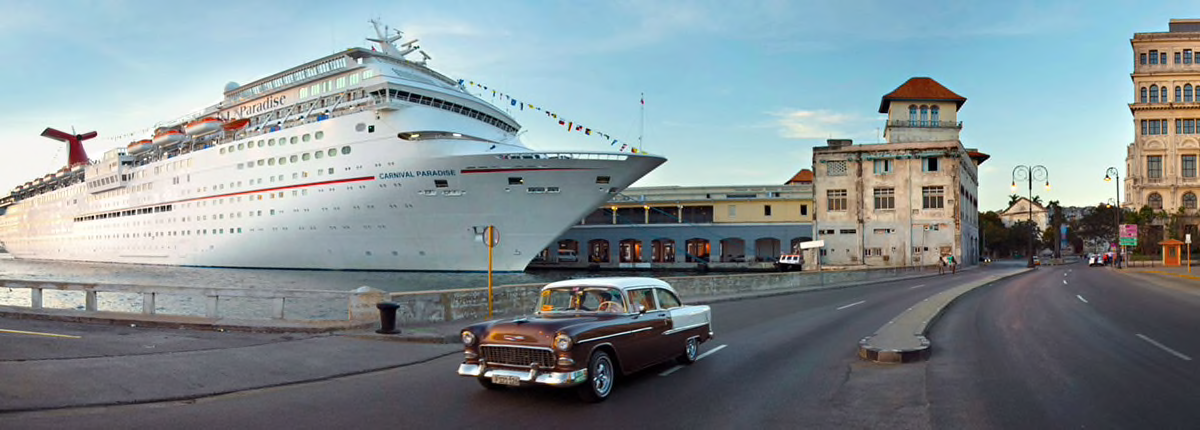By Vito Echevarría
Four cruise companies went into mediation with a Helms-Burton litigant last fall, but as of late May, a settlement still is elusive.
A mediator’s report filed Feb. 20 in Miami federal district court said that Havana Docks Corporation and the four cruise companies it is suing — Miami-based Norwegian Cruise Line Holdings, Carnival Cruise Corp., Royal Caribbean Ltd. and Switzerland-based MSC Cruises — said that a meeting took place last October to aim for a final settlement.
“The case did not settle, but by agreement of the parties and the mediator, the mediation was adjourned (and not impassed) pending further developments in the case,” said the February report, filed by Miami-based mediator Thomas E. Scott, Esq. “The parties are continuing to discuss settlement.”
In another Title III case, Swiss cement giant LafargeHolcim in May agreed to settle, marking the first time a company goes on record for paying claimants for use of their property in Cuba.
Efforts to settle the cruise cases began just before the November 2020 presidential election. The victory of Joe Biden, who said during his campaign he would ease sanctions imposed by Donald Trump, raised hopes for a resumption of Cuba cruises and incentivized cruise companies to settle litigation.
Some 800,000 mostly U.S. passengers were annually sailing to Cuba by 2018, two years after cruises from U.S. ports started. The Trump administration blocked cruises in 2019.
“Our cruises to Cuba were highly successful, and we were in the process of adding additional brands to travel”, said Carnival Cruise spokesman Roger Frizzell. “Cuba helped refresh our itineraries to the Caribbean, giving our guests an exciting new destination to visit.”
Miami-based legal expert Nick Gutiérrez, who is an advisor to claimants against Cuba, assumes that cruise lines that want to sail to Cuba in the near future will have to hammer out a settlement with Havana Docks. This would cover not just prior instances of “trafficking” under Title III, but future ones as well.
“The cruise companies “don’t want to face additional lawsuits going forward,” said Gutiérrez.
Unlike in other Title III cases, which often involve a large group of heirs to a claim, the plaintiff behind the Havana Docks suits is one individual. Mickael Behn – grandson of the pre-Castro owner of the company that held a 99-year lease for key port operations in Havana — is a television production editor who shuttles between London and Miami.
According to Havana Docks’ second amended complaint against the cruise lines, its certified claim is worth $7.6 million plus 6% interest per annum. Since Helms-Burton allows a plaintiff to triple damages, that would equal $22.8 million per defendant, or $91 million total plus interest.
The recent political environment has not exactly enticed cruise companies to settle quickly. In January, Carnival CEO Arnold Donald told analysts that his company is “well prepared” to resume Cuba cruises if the Biden administration changes rules. However, no cruise industry executive has brought up Cuba publicly since then, as the new president has failed to make any moves that would indicate a restart.
Adding a layer of uncertainty, the federal government’s CDC has conditioned a resumption of cruises on steps by cruise operators and ports to minimize future COVID-19 outbreaks. In April, Florida Gov. Ron DeSantis took the federal government and the CDC to court, demanding that Florida-based cruises be allowed to resume immediately. In mid-May, a federal judge in Tampa sent the opposing sides to arbitration. At the same time, DeSantis insists he won’t allow cruise companies to require passengers be vaccinated for COVID-19 as planned for summer restarts.
Most importantly, Judge Beth Bloom initially held that Havana Docks had no standing, because its lease nominally expired in 2004. A similar case against Carnival, filed by the heir of port property in Santiago de Cuba, was dismissed by Miami District Judge James Lawrence King in July last year, for lack of standing. However, in a recent turnaround, District Judge Bloom conceded she made factual and legal errors, and allowed the plaintiff to file an amended complaint.
The judge’s reversal, in turn, might incentivize mediation talks to pick up speed again.
A lucrative settlement could spur similar activities in cases such as the one involving use of José Martí International Airport (Regueiro v. American Airlines Inc. and LATAM Airlines Group), and land that is now part of the Mariel Special Development Zone (Odette Blanco de Fernández et al v. A.P. Moller-Maersk A/S).

